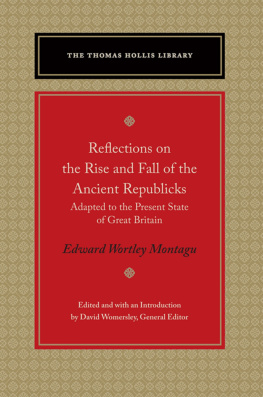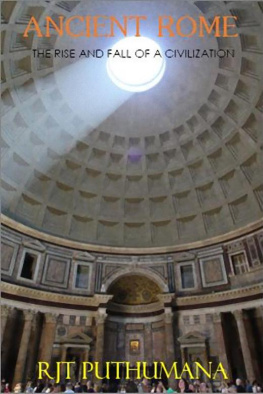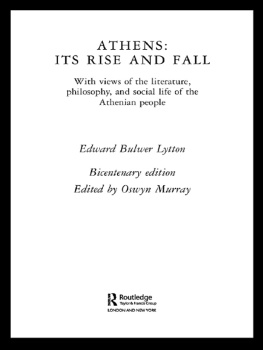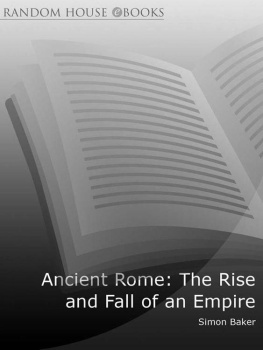PREFACE
Plutarch takes notice of a very remarkable law of Solons, and even makes the punishment capital, though he resolves at the same time not to conform to it under his present circumstances, unless his friend should advise him to the contrary.
Which of these relators has given us the real penalty annexed to this law by Solon, is scarce worth our inquiry. But I cannot help observing, that strange as this law may appear at first sight, yet if we reflect upon the reasons of it, as they are assigned by Plutarch and A. Gellius, it will not appear unworthy of that great legislator.
The opinion of Plutarch is; that Solon intended no citizen, as soon as ever he had provided for the security of his own private affairs, should be so unfeeling with respect to the publick welfare, as to affect a brutal insensibility, and not to sympathize with the distress and calamities of his country: but that he should immediately join the honester and juster party; and rather risque his all in defence of the side he had espoused, than keep aloof from danger until he saw which party proved the stronger.
The reason given by A. Gellius is more striking, and less liable to objections than that of Plutarch. If (says that writer) all the good men in any state, when they find themselves too weak to stem the torrent of a furious divided populace, and unable to suppress a sedition at its first breaking out, should immediately divide, and throw themselves into the opposite sides, the event in such a case would be that each party, which they had differently espoused, would naturally begin to cool, and put themselves under their direction, as persons of the greatest weight and authority: thus it would be greatly in the power of such men so circumstanced, to reconcile all differences, and restore peace and union, while they mutually restrained and moderated the fury of their own party, and convinced the opposite side, that they sincerely wished and laboured for their safety, not for their destruction.
What effect this law had in the Athenian state is no where mentioned. However, as it is plainly founded upon that relation which every member bears to the body politick, and that interest which every individual is supposed to have in the good of the whole community; it is still, though not in express terms, yet virtually received in every free country. For those who continue neuter in any civil dissension, under the denomination of moderate men, who keep aloof and wait quietly in order to follow the fortune of the prevailing side, are generally stigmatized with the opprobious name of time servers, and consequently neither esteemed, nor trusted by either party.
As our own country is blessed with the greatest share of liberty, so is it more subject to civil dissensions than any other nation in Europe. Every man is a politician, and warmly attached to his respective party; and this law of Solons seems to take place as strongly in Britain, as ever it did in the most factious times at Athens. Freedom of thought, or the liberty of the mind, arises naturally from the very essence of our constitution; and the liberty of the press, that peculiar privilege of the British subject, gives every man a continual opportunity of laying his sentiments before the publick. Would our political writers pursue the salutary intention of Solon, as delivered to us by A. Gellius in his explication of that extraordinary law, they might contribute greatly to the establishment of that harmony and union, which can alone preserve and perpetuate the duration of our constitution. But the opposite views and interests of parties make the altercation endless; and the victory over an antagonist is generally the aim, whilst the investigation of truth only, ought ever to be the real end proposed in all controversial inquiries. The points which have lately exercised so many pens, turn upon the present expediency, or absolute insignificancy, of a militia; or, what principles conduce most to the power, the happiness, and the duration of a free people. The dispute has been carried on, not only with warmth, but even with virulence. The chicane of sophistry has been employed, whilst indecent personal reflections, and the unfair charge of disaffection, have been too often made use of to supply the defect of argument, and to prejudice the reader, where they despaired of confuting the writer. Historical facts have been either misrepresented, or ascribed to wrong principles; the history of ancient nations has been quoted in general terms, without marking the different periods distinguished by some memorable change in the manners or constitution of the same people, which will ever make a wide difference in the application.
Anxious after truth, and unsatisfied with so many bold assertions destitute of all proof but the writers word, which I daily met with, I determined coolly and impartially to examine the evidence arising from ancient history, which both sides so frequently appealed to: for bare speculative reasoning is no more conclusive in political inquiries than in physical. Facts and experience alone must decide: and political facts and experience must alone be learned from history. Determined therefore to judge for myself, I carefully read over the histories of the most celebrated republicks of antiquity in their original languages, unbiased either by comments or translations; a part of history of all others the most instructive, and most interesting to an Englishman.
As instruction was the sole end of my inquiries, I here venture to offer the result of them to the candour of the publick, since my only motive for writing was a most ardent concern for the welfare of my country. The design therefore of these papers is, to warn my countrymen, by the example of others, of the fatal consequences which must inevitably attend our intestine divisions at this critical juncture; and to inculcate the necessity of that national union, upon which the strength, the security, and the duration of a free state must eternally depend. Happy, if my weak endeavours could in the least contribute to an end so salutary, so truly desirable!
In the numerous quotations from the Greek and Latin historians, which are unavoidable in a treatise of this nature, I have endeavoured to give the genuine sense and meaning of the author, to the best of my abilities. But as every reader has an equal right of judging for himself, I have subjoined in the margin, the original words of the author, with the book, page, name, and date of the respective edition, I made use of, for the ease as well as the satisfaction of the candid and judicious: for that vague and careless manner, which some writers affect, of quoting an author by name only, without specifying the particular passage referred to in evidence, is neither useful, nor satisfactory to the generality of readers; whilst the unfair method, too often practised, of quoting disjointed scraps, or unconnected sentences, is apt to raise strong suspicions, that the real sentiments and intention of the author are kept out of sight, and that the writer is endeavouring to palm false evidence upon his readers.







